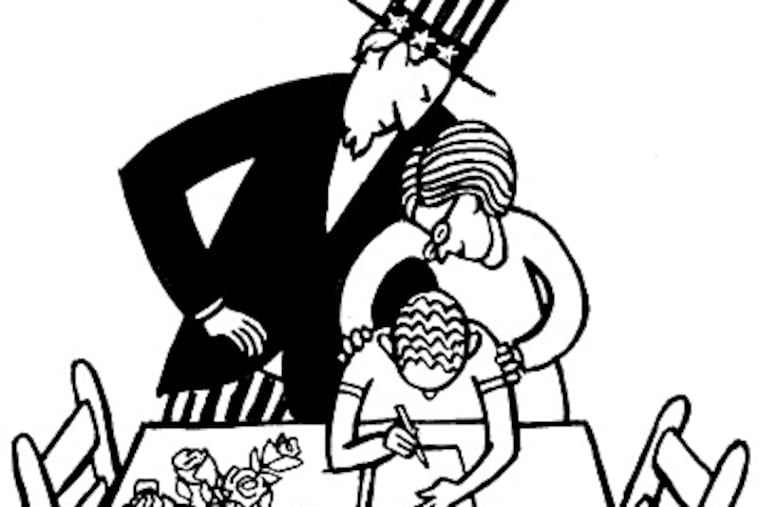Inquirer Editorial: No Child waivers make sense for now
Members of Congress railing against the Obama administration's decision to grant waivers from the sweeping No Child Left Behind education law have little ground to stand on.

Members of Congress railing against the Obama administration's decision to grant waivers from the sweeping No Child Left Behind education law have little ground to stand on.
The waivers wouldn't be necessary had Congress stopped its excessive partisan bickering long enough to overhaul the 2002 law that requires all students to score at proficient levels in reading and math by 2014.
Education Secretary Arne Duncan had warned lawmakers that 82 percent of schools could miss academic benchmarks this year, compared with 37 percent last year. Schools that fail to meet standards can be labeled as failing and risk being shut down.
With no sign that Congress will address known flaws in the law, it makes sense for the Department of Education to grant waivers to states showing significant progress. But the waiver program should be viewed as a stopgap measure and not a substitute for rewriting the law.
Critics have rightly charged that the law is more punitive than corrective, which leads to teachers "teaching to the test" to avoid sanctions. No Child Left Behind also labels good schools as failures when only a few students may have missed the mark.
Under the White House plan, 10 key provisions of the unpopular law would be waived for states that qualify and agree to adopt reforms pushed by the administration, including evaluating teachers more stringently and setting standards to prepare students for college or careers.
The waivers are good news for states and struggling school districts that faced the likelihood of losing federal funding. In Philadelphia, only 158 of 267 public schools, or 59 percent, met the benchmarks for adequate yearly progress for the 2009-10 school year. New figures are due out this week.
Even with waivers, states will still be required to administer yearly standardized tests and measure performance by minority and special-education students, which has helped narrow the student achievement gap.
Republicans claim Obama and Duncan have overstepped their authority by using the waivers to circumvent a law passed by Congress. But the waivers don't excuse Congress from doing the harder work of retooling the law so it makes more sense for schools, teachers, and students.
The brainchild of former President George W. Bush, NCLB has increased accountability and forced schools to focus more on the disadvantaged students who were often left behind. With the right changes, it's still possible for the law to become the remedy that produces better educational outcomes for more children.